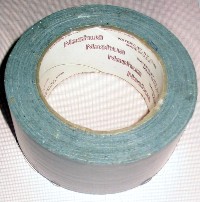The technology transfer arm of Kansas State University in Manhattan has received an international patent for an adhesive that increases in strength as moisture is removed. The patent covers an adhesive made from peptides — a compound containing two or more amino acids that link together.
The adhesive was created by biochemistry professor John Tomich and Xiuzhi Sun, professor of grain science and industry. Adjunct professor in biochemistry Takeo Iwamoto and Xinchun Shen, a former postdoctoral researcher, assisted in the research.
The adhesive is based on mechanical principles, like Velcro, rather than chemical properties. It uses nanoscale fibers, called fibrils, with hooks that lock together. Tomich had earlier developed a peptide with cement-like properties, which Sun had further refined in her work on the adhesive qualities of soybean proteins. In their collaboration, they isolated a certain segment of the protein where the cells are highly attracted to each other and form the fibrils.
Unlike many commercial adhesives using chemicals, the peptide adhesive bond becomes stronger rather than break down as it dries out, which makes it practical for unusual environments. One of those demanding environments is outer space, where components like heat-shield tiles are attached to spacecraft. And because the adhesive bond becomes stronger as moisture decreases, the material could also be used as a device to detect moisture.
The Kansas State University Research Foundation, which holds the patent, is working with the National Institute for Strategic Technology Acquisition and Commercialization, also in Manhattan, to license the patent.
* * *


 RSS - Posts
RSS - Posts
You must be logged in to post a comment.